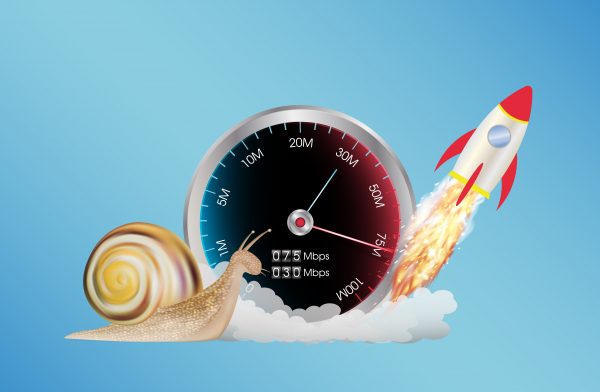We’ve all experienced this phenomenon before: you’re gaming online with your friends, about to secure that all-important kill and win your team the game, when suddenly all the character models on screen freeze and lock in place. Movement becomes jerky and characters start to slingshot around the map. Nothing you do has any effect and the game suddenly becomes unplayable. You’ve been hit by the dreaded lag, and your online game is ruined as a result.
It’s no fun having this happen to you. Your friends will chastise you, you’ll probably lose some sort of rank or standing in your game, and you won’t want to play next time because of lag. All is not lost, though; there are ways to reduce – and in some cases, completely eliminate – online lag. Here’s our handy guide on the ways you can get rid of this nuisance while you’re gaming and get back to what really matters.
Use latency optimising software
You could go about the cumbersome business of analysing and deducing the problem with your connection yourself, or you could use helpful latency optimisation software. One program that could really help you fix your connection is the Badosoft Latency Optimizer. This handy piece of software comes with a powerful and feature-rich set of optimisation tools to help you figure out the problem and fix it fast. It’s not just all about online lag, though; Badosoft’s nifty program can also fix frame rate drops in your games and even speed up your PC in general. All in all, this is definitely a useful piece of software to have for yourself, especially if you’re serious about online gaming. Don’t bother digging around in your PC – let Badosoft do the hard work for you.
Check if anything else is hogging bandwidth
Depending on the strength and quality of your connection, you could be sharing connection space with another device in your home that’s doing something bandwidth-consuming like downloading or streaming 4K media. Check if someone in another room is watching a streaming service or downloading something themselves. If they are, this can cause serious latency issues in your game as well. You might have to wait until they’re finished or negotiate a time when you can play uninterrupted if this is the cause of your online lag problem.
Use an ethernet connection
Cable connections to your router are naturally going to be much stronger than Wi-Fi connections. After all, if your device isn’t competing with others connected to the Wi-Fi and the data is being sent directly along a cable to your PC, then you’ll struggle much less with lag and latency issues. If you notice consistent connection problems, try connecting your PC via an Ethernet cable. Try to find a natural-looking and non-intrusive solution when you’re threading the cable from your router to your PC, because longer Ethernet cables can be an eyesore. You’ll notice the difference immediately if it’s simply that too many devices are jostling for Wi-Fi priority.
Upgrade your speeds
Depending on who your provider is, you may be able to upgrade to the next package up from the one you’re currently using. If you live alone, then a connection speed of around 15-20Mbps is fine; you probably won’t be using any other devices while you’re gaming, and you should be worried about latency more than outright download speed anyway. If, however, you live with others, and there’s no way you can negotiate times when nobody else is using your internet, you might need to upgrade your speed. Having a connection of over 20Mbps is essential for multi-resident households who want to stream HD media, game, and stream music simultaneously (for example). Your current provider should be happy to upgrade your speed for you. If not, it’s time to move.
Check your ping before you start
Before you begin gaming, it’s a good idea to check your ping multiple times. Ping is essentially the amount of time it takes for your machine to communicate with a server. If you want to game online, then a ping of 30ms or below is ideal. Any less than around 15 and you won’t notice the difference at all. 30-70ms is workable, but you’ll need to get used to it. Anything over around 100-150ms is pretty much unacceptable and you’ll need to take steps to fix it. If you’re using other programs yourself which could be using bandwidth, then close them down before you start. Streaming pretty much anything while you’re gaming is a no-no with a weak connection.
Upgrade your router
If you’re using an older model of router from your provider, then it’s possible your model just isn’t equipped to deal with the kind of speeds you regularly need for gaming. If that’s the case – and, of course, you’re the bill payer – then you should get in touch with your provider and see if you can upgrade your model. Good providers will automatically recognise that your model is outdated and provide you with a new one, but you can always call and check you’re on the latest one. If you are, and you’re still seeing awful speeds, then your provider could simply not be the right one for you. Many people can make do with less-than-optimal speeds; after all, latency isn’t noticeable when streaming movies or music. As a gamer, though, you need to ensure you’ve got the best possible connection at all times. Don’t let your router get in the way.
These are some of the ways we’ve identified to reduce online lag. Let us know if they worked for you and if you have any suggestions of your own we’d love to hear them!

